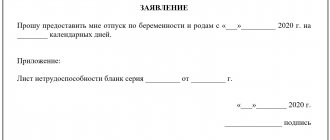No matter how strange it may seem, in practice there are cases when the recipient of alimony voluntarily refuses it for various reasons. This could be a move to another country, an increase in the recipient's income, or the mother has remarried and no longer needs child support. But this does not mean that you will not be able to apply for alimony again in the future. Most often, situations arise when the refusal occurs by court decision. This case is more complex, so claimants are interested in whether it is possible to apply for alimony again? Let's look at each situation separately and what will be required of you to re-apply for alimony.
What is a re-filing for child support?
The legislation does not restrict a plaintiff who has been refused or who has withdrawn the writ of execution from re-submitting an application to the judicial authority for the purpose of collecting alimony. You can do this as follows:
- Go to court a second time and re-apply for alimony. This situation occurs for those who did not complete the trial the first time and a decision was never made. This is possible when the plaintiff changes his mind about forced collection, or the defendant has circumstances such that he is currently unable to pay alimony. Also, the reason for re-applying is a violation of procedural legislation or making mistakes at the stage of the initial application.
- Contact the bailiff service. If the writ of execution was issued by a judge in accordance with a positive decision on the collection of alimony, then you are not required to go to court again, since the court decision will be valid until the child comes of age. When contacting a bailiff, you only need to write a repeated application to initiate enforcement proceedings for alimony.
If you have previously received a court decision and have a writ of execution in your hands, then know that it does not have retroactive effect, so you can renew it at any time until the child turns 18 years old.
That is, the Civil Procedure Code allows not only the filing of a repeated application for alimony, but also multiple appeals. Therefore, if you are going to court for the first time to collect alimony, then immediately pay special attention to the correctness of the application and the package of required documents, so that they are relevant at the time of filing, and also contain evidence of the lack of maintenance by the father of the child. This is the only way to immediately get a positive decision.
The procedure for re-filing a claim for alimony
If alimony was not collected the first time, then when applying again you need to eliminate the problem:
- If the statement of claim was drawn up incorrectly, contact the lawyers on our website, they will help you file the claim correctly.
- If the documents were collected incorrectly, then you need to prepare the documents that the judge indicated in the ruling.
If the plaintiff wants to change the form of recovery, the amount of payments, the defendant, then you need to prepare evidence, depending on the situation.
Elena Plokhuta
Legal expert. 6 years of experience. I specialize in civil disputes in the field of family law.
How to reapply for child support in 2021:
- Fix the problem or collect the necessary evidence.
- Prepare documents.
- File a claim.
- Apply to the court. The court sends notifications of the date of the first court hearing to the parties to the proceedings.
- Attend a court hearing. The plaintiff and defendant attend the hearing, present their arguments, and at the end the judge announces the operative part of the decision.
- Get a court decision.
To collect alimony forcibly, the plaintiff receives an extract from the court decision and a writ of execution. The documents are handed over to the bailiff at the defendant’s registered address.
The bailiff must take all measures to collect:
- find the debtor’s place of work;
- establish the presence of property in the property;
- seize property if a debt arises.
If the defendant is officially employed, then the claimant can submit a writ of execution to the accounting department at his place of work. The accountant transfers funds to the recipient's account specified in the application every month, no later than three days after payroll is calculated.
Statement of claim
The statement of claim must comply with the requirements of Art. 131 Code of Civil Procedure of the Russian Federation.
The document must include:
- name of the court;
- Full name, passport details, registration address of the plaintiff;
- Full name, place of work, date of birth, residential address of the defendant;
- information from children's birth certificates;
- claims indicating specific amounts or shares to be recovered;
- list of documents;
- number and signature.
If a legal representative is acting on behalf of the plaintiff, this must be indicated in the claim.
Sample claim
Consultation on document preparation
Required documents
The standard list of documents (Article 132 of the Code of Civil Procedure of the Russian Federation) for going to court looks like this:
- passport;
- certificates of registration and divorce;
- child's birth certificate;
- income certificates;
- certificate from the passport office.
When collecting payments for an adult disabled child, a medical certificate of disability is provided. If money is collected from a woman on maternity leave - certificates from the antenatal clinic.
If a representative acts on behalf of the plaintiff, a notarized power of attorney will be required.
State duty
In 2021, plaintiffs in cases of alimony collection are exempt from paying state fees. If the decision on the claim is positive, the defendant pays it:
- 150 rub. – if money is collected from a child,
- 300 rub. – for a minor and ex-wife.
Are you tired of reading? We’ll tell you over the phone and answer your questions.
In what cases is it possible to re-collect alimony?
We have already found out that you can apply for alimony collection more than once, but the purpose of the application is related to the reason for the initial refusal or other circumstances.
Is it possible to re-apply for alimony after refusing it?
In practice, there are also cases when a parent, of his own free will, during the judicial review process or after receiving a writ of execution, withdraws his claim. This situation is usually provoked by the applicant. Its refusal may be due to the following reasons:
- The forced collection of alimony from the father does not give the desired result, and the bailiffs cannot hold him accountable, so the applicant understands the pointlessness of going to court and wants to revoke the court decision;
- The parents decided to enter into a notarial alimony agreement among themselves;
- The income of the claimant allows him/her to support the child independently;
- The mother's relationship with the father is bad, so she does not want him to demand alimony payments from the child in old age and claim to participate in his upbringing;
- The potential alimony payer agreed with the claimant that he does not have the financial ability to help the child, but he will help in other ways.
That is, if, based on your application, you received a positive court decision and there is a writ of execution in your hands or already in the bailiff service, then you can revoke it at any time, and, if necessary, resume enforcement proceedings on alimony. But if the trial is not completed, then you are required not only to go to court a second time, but also to re-submit all the necessary documents and go through the stages of the trial until a decision is made.
Re-filing a statement of claim or resuming claim proceedings based on a writ of execution is impossible only in one case, when the refusal is drawn up in the form of a notarial document and certified by signatures.
Re-applying for alimony if new circumstances arise
But the defendant most often submits a second application under new circumstances. Since changes in his family life or health are directly related to the payment of alimony, he is therefore interested in petitioning either to reduce the amount of payments or in the order in which they are calculated. That is, even if a court decision has already been made, the defendant has the right, if the following circumstances exist, to file a new claim:
- Deterioration of health;
- Receiving disability;
- Serious documented costs associated with treatment;
- Temporary loss of ability to work, which directly affects income;
- Downsizing at work;
- The emergence of new dependents: parents, pregnant spouse or children from a new marriage;
- Reduction of additional income or its complete cessation, for example, rental payments, interest on a deposit.
Any of the above conditions must be supported by documented evidence. As for increasing child support payments, the initiative from the defendant rarely comes and a repeated claim for this purpose is usually filed by the claimant, that is, the parent with whom the child lives. However, it is also important here to prove the need to increase alimony - with certificates, hospital extracts, checks, receipts. Therefore, if you doubt whether you can file a claim again, if you are not satisfied with the amount or procedure of payments, then any lawyer will tell you that it is possible.
Resubmission in individual cases
Let's look at situations in which you can re-apply for alimony.
If there is a child support agreement
According to the RF IC, the parties can at any time enter into an agreement on the payment of alimony and have it certified by a notary. The content, terms, amount and procedure for payment are determined by the former spouses independently.
If the contract is drawn up after a court decision, a claim is filed to cancel the court decision and terminate enforcement proceedings on the basis of Art. 43 Federal Law dated October 2, 2007 No. 229-FZ.
The case is reviewed within a month and a new decision is issued. The father must obtain a court decision and submit it to the bailiff to terminate the enforcement proceedings.
The father canceled the child support order
If the child’s father has an official job and the mother can obtain a certificate of his income, then only the magistrate’s court can collect alimony. To do this, you need to apply for a child support order.
After 5 days, the magistrate will issue a court order. The father has 10 days to challenge it. To do this, he must file an objection and the order will be canceled.
In this situation, the mother must collect documents and reapply for child support. But now the application is being submitted to the district court. The judge calls the parents into court and decides on the amount of child support. Child support will definitely be collected through the district court.
Note! You cannot immediately submit documents to the district court. The court will return the documents without consideration if the jurisdiction procedure is not followed.
Father does not pay child support (collection of a penalty)
If the father does not pay child support ordered by the court or established by agreement, then for each day of delay there is a penalty in the amount of 0.1% for each day of delay. But it is not assigned automatically. It must be recovered through the court.
To do this you need:
- Contact the bailiff for a certificate of calculation of alimony debt. The bailiff makes the calculation, taking into account the amounts assigned for payment, the minimum wage, and the cost of living.
- File a claim for the recovery of alimony penalties.
- Submit documents to court.
- Receive a court decision and writ of execution.
- Hand them over to the bailiff.
The father can avoid accruing a penalty if he proves that the delay was not his fault (Article 114 of the RF IC).
Collection of alimony debt
If the father does not pay child support, which is collected through the bailiffs, a debt is formed. In order for the bailiff to sell the debtor’s property to pay off the alimony debt, the mother must go to court. You can combine the collection of alimony debt and the collection of penalties in one claim.
The court decision will come into force in 30 days. After which the mother must receive a writ of execution. It must be handed over to the bailiff.
The bailiff must:
- seize the debtor's accounts;
- describe his property and sell it to pay off the debt;
- hold the debtor accountable for non-payment (Article 5.35.1 of the Code of Administrative Offenses of the Russian Federation).
Enforcement proceedings terminated
At the end of the proceedings in court, the plaintiff is given a writ of execution and an extract from the decision, which he submits to the bailiffs. After which the FSSP officer initiates enforcement proceedings and takes measures for recovery.
In accordance with Art. 43 of the Federal Law “On Enforcement Proceedings”, enforcement proceedings are terminated if the claimant has withdrawn the writ of execution.
To collect alimony again, you do not need to go to court again. It is enough to return the writ of execution to the bailiffs.
A writ of execution for alimony for an adult relative can be returned within 3 years, and for a child - until he reaches adulthood.
Required documents
When re-applying, the list of required documents does not differ much from the initial submission. So that you do not encounter problems or refusal to consider the case, you need not only to correctly draw up the application, but also to provide the required documents.
- Statement of claim in two copies;
- Parents' passports (if it is possible to provide the defendant's passport);
- Birth certificate of a minor child;
- Certificate of marriage or divorce, if an official marriage was concluded;
- Providing a certificate of income of the plaintiff and defendant (if possible);
- Certificate stating that the plaintiff lives together with a dependent;
- Receipt for payment of state duty.
The state fee will be charged only when the defendant files a repeated claim, for example, when alimony payments are reduced.
In addition to the above list of documents, you should understand that you may be required to provide additional papers if the judge has questions based on your application. Also, take care in advance of documents that will indicate the lack of assistance to the child from the second parent, and provide as complete information as possible in the application about the defendant - residential address, contacts, place of work. If you have any problems applying for alimony again, you can solve them through the Supreme Court website.
Repeated collection before consideration of the case
The applicant has the right to re-write the statement of claim before initiating a civil case for two reasons:
- Return by the court of a claim in connection with certain violations of procedural law.
Article 135 of the Civil Procedure Code specifies 6 cases when the court can return a document to the plaintiff. For example, the citizen who wrote the application is legally incompetent, or he has not paid the state fee, or the case is not within the jurisdiction of this court. - The court left the case pending for reasons specified in the Civil Procedure Code in Article 222.
In judicial practice, this often happens due to the absence of one or both parties at the meeting.
Therefore, in the same code in Article 223 it is written that an interested person can again appeal to the judicial authority with his demands.
Before re-applying to the authority, the plaintiff should correct the violations if the application was returned, or eliminate the circumstances that served to leave the case without consideration.
A citizen has the right to address a claim to the same or another magistrate's court.
Submission order
As we found out, filing for alimony twice is a completely legal procedure. However, the procedure for filing an application depends on the specific case and how the previous legal proceedings ended. So, there are two options:
- Repeated appeal to court;
- Resumption of the enforcement case on the payment of alimony through the FSSP.
In the first case, you need to go to court with a repeated statement of claim and all the necessary documents, where you state your demand in order to receive alimony, change its amount or order. Usually, you file an application with the court for the second time when the last time the claim was not considered, you withdrew it of your own free will, or you were refused. The resubmission is no different from the initial submission.
If a court decision has already been made, and you received an enforcement decision in your hands, then re-filing a lawsuit with a similar request is no longer possible.
But in the second case, you need to contact the bailiff service when you already have a writ of execution, but you previously withdrew the enforcement proceedings, for example, due to the impossibility of collecting alimony from the payer or changed your mind. And now you want to bring the alimony payer to justice again. You will only need to write an application to the FSSP.
Thus, a claim can be filed in court an unlimited number of times, if you have not previously received a writ of execution for various reasons. And if a court decision has already been made, then re-submitting an application can only be associated with an increase/decrease or a change in the procedure for paying alimony. Otherwise, you no longer need to go to court; to resume the case of collecting alimony, you will only need the bailiff service.
Is it possible to apply for alimony if it was previously refused in court, the lawyer answers
Questions regarding the collection of alimony or the division of property during a divorce are of interest. They were raised several times in the “Right to Defense: Advice from a Lawyer” section. The demand for professional advice from a lawyer remains high, which is explained by the considerable number of disputes considered by the courts. The questions of readers sent to our mail are answered by lawyer of the Minsk City Bar Association Ekaterina Pronevich.
After the divorce, she applied for alimony, but her daughter’s father did not pay it on time. Then a series of events began that gave impetus to the deprivation of his parental rights: indifference in his daughter’s life, complete disregard for holidays, including her birthday, lack of financial and moral support. As a result, in 2015, his parental rights were deprived, but I know that, in accordance with Part 2 of Art. 82 of the Code on Marriage and Family, deprivation of parental rights does not relieve one from the obligation to support children. In the courtroom, I wrote a refusal to pay alimony, because at that time I was financially strong and did not need his money. Now the situation has changed and I would like him to participate in the financial support of his daughter. The question is: if I wrote a paper stating that I refuse his alimony, does Part 2 of Art. 82 of the Code on Marriage and Family? If not, what should be the algorithm of action on my part so that I can apply for alimony?
Parents who are deprived of parental rights lose all rights based on the fact of relationship with the child. This also applies to upbringing, legal representation and protection of his interests, and reclaiming the child from other persons. The right to give consent to adoption, receive maintenance from him, pension provision after the death of a child and inheritance by law is also lost.
However, in accordance with Part 2 of Art. 82 of the Code on Marriage and Family, deprivation of parental rights does not relieve parents from the obligation to support children.
Consequently, you have the right, at any time before the child reaches the age of majority, to apply to the court with a demand to recover funds for his maintenance from the parent deprived of parental rights.
I also note that to collect alimony, as a rule, a statement of claim is filed. Based on the results of its consideration, the court makes a decision in which it determines the amount of alimony and issues a writ of execution. Also, instead of a lawsuit, an application to initiate writ proceedings may be filed. In this case, the court issues a ruling on the court order without holding a court hearing or summoning the spouses.
Both the writ of execution and the ruling on a court order are executive documents. In other words, these are the documents on the basis of which alimony is collected.
A young couple, preparing for their wedding, began construction of their apartment with the involvement of a developer. Before the wedding, 100% of its cost was paid. At that time the apartment was still under construction. After marriage, the completed apartment was registered in the name of the spouse at the state registration and land cadastre agency. Who will get the apartment in case of divorce? Spouse? In fact, he paid the rent for the apartment before marriage, although all his relatives collected funds. The marriage involved only renovations. It is difficult to draw up a marriage contract; there is no agreement.
According to Art. 220 of the Civil Code, the right of ownership to capital structures (buildings, structures) under construction and other newly created real estate arises from the moment of completion of its creation, unless otherwise provided by law. In cases where newly created real estate is subject to state registration, the right of ownership to it arises from the moment of such registration, unless otherwise provided by law.
Accordingly, since ownership of real estate arises from the moment of its registration, the acquired residential premises are jointly acquired property.
In the event of any legal proceedings, the fact that the property was purchased with the spouses’ joint money can be proven in court, including by testimony.
My wife and I have been divorced for a year now, but until recently we lived together. The question is this: she was given an old house, but during the marriage significant changes were made to it (in fact, a new house was built). Am I entitled to a share in it? I am not registered there, but I can confirm the fact of residence: I paid all utilities. I believe banks can provide this information; all payments were made through Internet banking. Neighbors can confirm this too.
According to Art. 26 of the Code on Marriage and Family, property that belonged to spouses before marriage, as well as property received by them during marriage as a gift or by inheritance, is the property of each of them.
So, based on the general rule, in view of the fact that the specified residential building was given to the wife during the marriage, it seems that only she should be recognized as its sole owner.
However, part 1, paragraph 13 of the resolution of the Plenum of the Supreme Court dated March 26, 2003 No. 2 “On the application of legislation by courts in resolving disputes related to the ownership of residential premises” states that residential premises belonging to one of the spouses may be recognized by the court as joint property, if it is established that during the marriage, at the expense of the common property of the spouses or the personal property of the other spouse, in particular, major repairs, reconstruction, and re-equipment of the residential premises were carried out, as a result of which its value increased significantly. To clarify this issue, the court must obtain an expert opinion on the cost of the residential premises before and after repairs, reconstruction, and re-equipment.
Consequently, if it is proven that there has been a significant increase in the value of a residential building due to investments during the marriage of the spouses’ common property, in court this real estate can be recognized as jointly acquired property and subject to division according to the general rule of legislation regulating the division of jointly acquired property of spouses.
Tell me how you can divide property with your ex-husband. While living together, we bought an apartment and 2 cars. Before my wedding, my grandmother gave me a house. The ex-husband abuses alcohol, refuses to move out of the apartment, and the children are on edge. During the divorce, he promised to give his part of the apartment as alimony, so his children do not receive money and do not take any part in their upbringing. I offered him part of my personal home in exchange for his share in the apartment - he refuses. We cannot move into the house because... he is in another city, far from work and school. The ex-husband periodically does not work. What do i do? Can the law help solve this problem?
Property acquired by spouses during marriage, regardless of which of them it was acquired for or which spouse contributed money to, is their common joint property. Spouses have equal rights to own, use and dispose of this property, unless otherwise provided by the Marriage Agreement.
Property that belonged to spouses before marriage, as well as property received by them during marriage as a gift or by inheritance, is the property of each of them.
When dividing property that is the common joint property of spouses, their shares are recognized as equal, unless otherwise provided by the Marriage Agreement. The court may deviate from recognizing the shares as equal, taking into account the interests of minors and disabled adult children in need of assistance, or the noteworthy interests of one of the spouses. The share of one of them, in particular, can be increased if the other spouse avoided working or spent common property to the detriment of the interests of the family.
Thus, based on this, an apartment and vehicles acquired during marriage are jointly acquired property. A residential building received as a gift before marriage is your personal property.
It is not possible to evict a former spouse from a residential premises, in particular from an apartment, if a Marriage Agreement has not been concluded between you and your spouse and there is no court decision that has entered into legal force on the division of jointly acquired property, according to which only you are the sole owner of the apartment. In the absence of a Marriage Agreement or a court decision, the ex-spouse is the same owner of the apartment as you are, and you do not have the right to deprive him of his legal rights to own, use and dispose of this property.
As for issues related to alimony, you have the right at any time before the child reaches the age of majority to apply to the court with a demand for their collection.
So, according to Art. 109 of the Code on Marriage and Family, a person entitled to receive alimony may file a corresponding application with the court, regardless of the period that has elapsed since the right to receive it arose. Alimony is awarded for the future from the moment you go to court. They can also be collected for the past, but not more than for the previous 3 years. In this case, it must be established that before going to court, measures were taken to obtain funds for maintenance, but alimony was not received due to the evasion of payment by the person obliged to do so, as well as in the cases provided for in Part 2 of Art. 105 code.
In your appeal, you reported that your ex-husband periodically does not work anywhere. In this regard, I would like to additionally draw your attention to the fact that if it is difficult to collect alimony (even if there is a court decision on its collection that has entered into legal force), the legislation provides for the following coercive measures against parents obligated to pay alimony.
So, if a person obligated to pay alimony avoids paying it, the parent interested in receiving alimony must actively interact with the bailiff who is conducting enforcement proceedings: call, write, visit on visiting days, etc. According to the declarative principle, a number of restrictions can be applied to the defaulter: a ban on travel abroad, deprivation of a driver’s license, seizure of bank accounts, a ban on the alienation of an apartment, etc. If there is arrears of alimony, interest can be collected for non-payment.
In addition, a parent who is obliged to pay child support but does not do so can be prosecuted under Art. 174 of the Criminal Code. For parents who evade payment of funds for the maintenance of minor children for more than three months during a year under a court order, punishment is imposed in the form of imprisonment for a term of up to 1 year.
In my opinion, the most effective and radical method for such unfortunate parents is deprivation of parental rights - as a parent who evades raising and (or) supporting a child. In this case, the father loses all rights in relation to the children, but the obligation to pay child support remains.
The information contained in this publication does not constitute legal advice from an attorney, does not replace it, and does not create a client-attorney relationship.
According to BELTA
The plaintiff himself refused alimony
In practice, there are cases when the claimant (that is, the person who has the right to receive alimony) voluntarily refuses such payments. Most often, the reason for such a decision is an increase in well-being and an improvement in financial situation, but sometimes the motive for refusing alimony is the reluctance to meet with the alimony payer and maintain any relationship with him or receive financial assistance from him.
Refusal of alimony can be made as follows:
- The person who filed the claim for alimony applies to the court with a request to dismiss the case due to the fact that he abandons his claims. Such refusal does not entail the termination of the right to file a similar claim in the future. That is, after the termination of the case, the plaintiff can file a similar application if the circumstances that led to the refusal of alimony no longer exist. The most striking example of such a situation are cases when, in the process of divorce, spouses decide to preserve the family, as a result of which there is no need to officially collect alimony, since both parents continue to live together with the children.
- Revocation of a writ of execution from the debtor's place of work or from the bailiff service at the initiative of the claimant. In essence, such actions do not mean a complete refusal to receive alimony, but only entail a temporary suspension of such payments. At any time, the plaintiff, who has a writ of execution in his hands, has the right to re-send it to the bailiff with a request to initiate enforcement proceedings and withhold payments from the debtor’s income.
What do you mean by re-collection?
When re-collecting, as a rule, the mother tries to get money from the father of her children for them, if she has previously made attempts of this kind.
Depending on the stages of the case, the following repeated collections of money for child support can be distinguished:
- Through the court, if: -Earlier the application or claim was not considered for any reason; -There is a court decision on alimony that has entered into force; -An agreement was signed between the parents for the voluntary payment of funds.
- Changes in the amount, method of collecting alimony, obtaining additional funds in court.
- Collection through bailiffs, if the writ of execution or order was previously revoked.
What is meant by each of the above types of repeated collection, when it is permissible, and when it is futile, we will consider further.
Sample of a repeated application for alimony
statement of claim for the recovery of alimony for a child (children) free in word format
If you want to go to court with a new claim, you should familiarize yourself with the rules for filing a corresponding application.
If enforcement proceedings in the case have been terminated, an application for its resumption should be sent to the bailiff service.
When drawing up a statement of claim, you should be guided by the provisions of Art. 131 Code of Civil Procedure of the Russian Federation.
ATTENTION! Look at the completed sample statement of claim for the collection of alimony for a child (children):
applications for re-initiation of enforcement proceedings free of charge in word format
According to its requirements, the text of the document must include the following information:
- the name of the court to which the plaintiff applies. This data is indicated at the top of the sheet on the right,
- information about the plaintiff and defendant (their full name, address and contact telephone number). These data are indicated below,
- circumstances that gave rise to the application to court. The plaintiff should state the facts of the marriage and its dissolution. It is also necessary to indicate when the child was born,
- references to legal norms obliging the defendant to pay alimony,
- the amount of income and expenses of the plaintiff. Justification for the amount of alimony sought,
- list of attachments to the statement of claim,
- date of execution of the document and signature of the plaintiff.
ATTENTION! Look at the completed sample application for re-initiation of enforcement proceedings:
If enforcement proceedings in the case have been terminated, an application for its resumption should be sent to the bailiff service.
In what cases and who can apply for child support?
From what amounts and income child support is withheld, read here.
Is it possible to collect alimony retroactively? Read the link: https://novocom.org/semya-i-deti/vzyskanie-alimentov-za-proshedshij-period-vozmozhno-li-eto-i-indeksiruyutsya-li-oni-2019 -god.html
Apply for alimony a second time: why and when is it necessary?
Re-filing for alimony is necessary when various procedural nuances arise that caused the first claim for collection to be rejected. It can be:
- Absence of a payment document confirming payment of the state duty (cheque, receipt);
- Legally illiterate filling out of the claim for collection;
- Insufficient evidence collected and attached documents;
- Other circumstances.
At first glance, if the application is refused, the only option is to apply for alimony a second time. However, this is not an entirely correct point of view. There are at least two situations when you cannot re-apply for alimony:
- There is already a court decision to collect alimony. You can only appeal the court decision or try to overturn it if it was made in absentia;
- A claim for alimony cannot be considered in this judicial branch. In this case, you need to find out the jurisdiction and the required authority in advance.
However, you cannot re-file for alimony in the form of a claim for alimony. If the fact of malicious evasion from paying alimony is revealed, then enforcement proceedings are opened in the FSSP department.
The Family Code allows repeated application to the court for alimony only in the following cases:
- The need to reduce or increase the amount of alimony payments;
- Changing the form of calculating alimony (for example, from “solid” to shared and vice versa);
- Cancellation of alimony or suspension of payments.
In other words, the term “repeated claim for alimony” does not exist. It is only allowed to resolve issues related to them that have arisen in court or the bailiff service.
Expert opinion
Marina Bespalaya
In 2011 she graduated from the University of Internal Affairs with a degree in jurisprudence. In 2013, master's degree course, specialty "law". In 2010-2011, a course at Portland State University (USA) at the Faculty of Criminal Law and Criminology. Since 2011 - practicing lawyer.
Example: citizen K., on the basis of a court decision, began to pay alimony in favor of a child living separately. The contents of the court decision indicate that the document is valid until the child reaches adulthood. But after the daughter reached the age of ten, the payer had another child who lives separately. The mother of the second baby filed a claim in court for alimony, and the payer - citizen K. - prepared his application to change the amount of deductions. Two claims were considered together with one decision being made - withholding alimony in favor of two children in the amount of 33% of the citizen’s income, that is, 15.15% in favor of each child.
How to write an application correctly
Having decided what exactly is considered a re-application for alimony, you need to draw up an application. Depending on the situation, this will be an application to the court and to the bailiff department. We prepare the application and documents attached to it in 3 copies:
- For the plaintiff;
- For the defendant;
- For the court.
The information in the application must be provided based on the available documents. If possible, you need to take a certificate of the defendant’s income from his place of work. But in its absence, the court cannot refuse to consider the claim. The plaintiff must also provide information about his income. This information is necessary for the court to decide on the amount of alimony to be collected.
Important! If there are 2 or more minor children in a family, each child must be indicated in the application.
If the plaintiff makes changes to the claims (replace the payment of alimony as a percentage of all types of income with the collection of funds in a certain amount of money), then he has the responsibility to justify the need for changes. Documents explaining the situation must be attached to the statement of claim. Fill in the upper right corner:
- Name of the court at the defendant’s place of residence;
- Details of the plaintiff (full name, permanent residence address, telephone number and/or email);
- Data of the defendant (full name, permanent residence address, telephone number and/or email);
- In the main part of the statement we describe in detail:
- Was there a marriage between the parties (indicate details of the certificate of state registration of marriage); lived together and ran a common household; were in a de facto marital relationship for a certain time; did not live together;
- Whether the marriage was dissolved (indicate the details of the divorce certificate, the reasons and the initiator of the dissolution of the marriage);
- List all joint minor children (full name, date of birth);
- Provide information about the plaintiff’s financial situation;
- Provide information about the defendant’s financial situation;
- Formulate the claims (I ask you to recover from the defendant funds for the maintenance of his minor daughter Irina Petrovna Petrova, born on March 5, 2016, in the amount of 5,000 rubles, monthly);
- List the documents that are attached to the application and the number of copies;
- Date, signature;
A sample re-application for alimony can be downloaded here.
Appendix to the application. Copies of the following documents must be attached to the claim:
- The plaintiff’s passport (first page, page with registration and page with children);
- A copy of the marriage certificate (if the child’s parents were married);
- A copy of the divorce certificate (if the marriage is dissolved at the time of filing the application);
- A copy of the child/children's birth certificate;
- Certificate of family composition or extract from the house register (at the children’s place of residence);
- Certificate of income of the plaintiff (necessary for the court to determine the amount to be recovered);
- Certificate of income of the defendant (if available);
Apply for alimony again to change its amount
The Family Code in Article 119 states that in Russia it is possible to change the amount of alimony at the request of one of the parties. However, such manipulations require sufficient grounds.
As a rule, it is necessary to prove a change in the financial or marital status of one of the former spouses, for example:
- The appearance of high income;
- Acquisition of disability or other incapacity for work by the payer or the child;
- The father receives a meager salary.
If a child support agreement was concluded between the parents or guardians of the child, then they can also resolve such issues independently by making changes to the text of the document. The only condition remains compliance with family law and the presence of a notary.
If alimony was established in court, then any issues with changing its amount must be resolved in court. To do this, you do not need to file a second claim for alimony. The case is considered based on statements that are different for each type of issue.
Repeated claim
The legislation provides for such a thing as re-filing a claim. Regarding the procedure for collecting alimony, this concept implies:
- re-applying to the court with a claim to withhold alimony for the maintenance of a minor child;
- re-application to the Bailiff Service with a writ of execution - for the purpose of forced collection of funds from the payer.
It should be noted that the repeated filing of a claim may be due to procedural reasons.
Thus, in some situations provided for by the Code of Civil Procedure of the Russian Federation, the judge returns the statement of claim or leaves it without consideration. In most cases, a claim is returned for several reasons:
- errors and inaccuracies in the text;
- absence of documents referred to by the applicant;
- failure to pay state fees or lack of receipt.
The court indicates what needs to be corrected and sets a deadline for eliminating violations. If the applicant eliminates the reason that prevents the acceptance and consideration of the claim (for example, he correctly fills out the claim, attaches the necessary documents, pays the state fee), he can submit the claim again.
In certain situations, also specified in the Civil Procedure Code, the court refuses to accept the application - without the right to resubmit. For example, if there is a decision in this case that has entered into force (the same plaintiff and defendant, the same dispute). Or if the jurisdiction of the court does not include consideration of this statement of claim. You can file a similar claim a second time, but the court will refuse to accept it.
However, if the situation has changed (circumstances have changed, new evidence has arisen, the defendant or the stated requirements have changed), the claim can be filed again.
It is important! If the court has decided to withhold alimony in favor of the child, there are no grounds for reapplying under the same circumstances. According to the law, such a claim cannot be considered by the court.
If there is a court decision, the alimony payer is obliged to make payments from the day the proceedings are opened until the child’s eighteenth birthday (in exceptional cases, even after the eighteenth birthday).
Even if the claimant refuses to receive alimony payments, or the payer avoids transferring funds, the court decision is valid and is the basis for the accrual and collection of debt.
Thus, if there is a court decision on alimony, all that remains is to execute it - voluntarily or forcibly. Any issues arising in the event of failure to fulfill obligations to support a child are resolved by a bailiff or a court - within the framework of existing proceedings or on the basis of a statement of claim by an interested person.
Re-collection after refusal of alimony
A common situation is when a mother, having presented the bailiff with writs of execution for forced collection, subsequently withdraws them. The retention of funds will then cease.
The reasons for this may be that the spouses have resumed their relationship, or the father offers to pay money voluntarily in a larger amount upon termination of enforcement proceedings in order to avoid unfavorable consequences for himself, for example, a ban on traveling abroad.
However, as time passes, the spouses may separate again, or the debtor will stop voluntarily fulfilling the agreements, stop transferring funds, believing that since the mother refused alimony, no one can force him to pay again. The mother, when the transfer of money to her stops, asks herself how she can again receive funds for her children after such a refusal.
When a writ of execution is revoked, the claimant has the full right an unlimited number of times (twice or more), until the child turns 18, to resubmit the document for execution and re-initiate the procedure for collecting alimony.
To do this, you need to contact the OSB, write a corresponding application (a sample will be given there), attaching a writ of execution to it. For the period when the writ of execution was revoked, alimony will also be accrued, but for a period of no more than 3 years (Article 113 of the Family Code of the Russian Federation).
When deciding whether it is possible to apply for child support again a second time, you need to analyze the situation that has developed in order to understand whether the parent in this case has legal grounds for collecting funds again. This will help you avoid refusals from the court and bailiffs, and also not waste your time and, possibly, money on unfounded statements.
Re-applying to court
Repeated appeal to the court to obtain funds may vary greatly depending on the specific situation, which will determine the admissibility and legality of such a claim.
Before consideration of the case on the merits
Sometimes, after submitting an application, with the documents attached to it, to the court, the matter never reaches the point of considering the case on the merits and making a decision on it as provided for by law. This situation is possible under the following circumstances:
- The claim was not signed by the plaintiff or signed by an unauthorized representative;
- The required documents are not attached or the required information is not provided;
- The state duty has not been paid;
- Documents filed in the wrong court;
- The applicant did not appear at the hearings twice, and the other party did not ask to consider the case in the absence of the plaintiff.
If at least one of the specified grounds exists, the court does not consider the claim on its merits; all documents are returned to the applicant.
At the same time, the claimant still has the right to apply for alimony again after all the shortcomings that led to the return of the application have been eliminated and the missing documents have been attached. Such an application will be accepted and considered.
If there is a court decision
It often happens that the court has made a decision (or a court order) to collect money from the father to provide for the children, but this decision is ignored by him and the money is never paid. And the mother decides that in order to force the negligent parent, she needs to go to court again for child support.
If there is a decision that has entered into force, it is unacceptable to re-file an application with exactly the same requirements that the court has already considered earlier and made a decision on them. Such an application will be returned with an indication that it is inadmissible to re-submit such an application.
Subject to agreement
Parents have the right to resolve all child support issues by enshrining them in an agreement certified by a notary. But after concluding such an agreement, the mother may decide to receive from the payer a larger amount or some other property for the children. This is where the decision arises to go to court and state your demands there.
If the parents have entered into an agreement, repeated collection of funds for the children through the court is impossible (Article 106 of the RF IC), the application will not be accepted for processing or, if this circumstance is established during the consideration of the case, the claim will be rejected.
To receive money by a court decision, you must first terminate the agreement by mutual agreement. But when, by agreement, children receive maintenance in a smaller amount than established by law (Article 81 of the RF IC), then it can be terminated in court and only then can they ask for alimony.
Apply for alimony again after the writ of execution is revoked
The revocation of a writ of execution most often occurs if the parties have reached an amicable agreement or there is no longer a need for forced collection of alimony. It is a big misconception to think that revoking a writ of execution means refusing child support. It just means the abolition of the forced collection of alimony payments and the closure of enforcement proceedings. This is done in order to protect the interests of the child from the rash actions of the parents.
You can read about how to resume enforcement proceedings at this address. A sample application is available for download at this link.
If alimony arrears reappear, the claimant has the right to cancel the revocation of the writ of execution. This action is equivalent to a repeated application for the collection of alimony.
To cancel the revocation of the writ of execution, you need to submit a corresponding application to your bailiff. In its content, it resembles a statement about the opening of enforcement proceedings.









